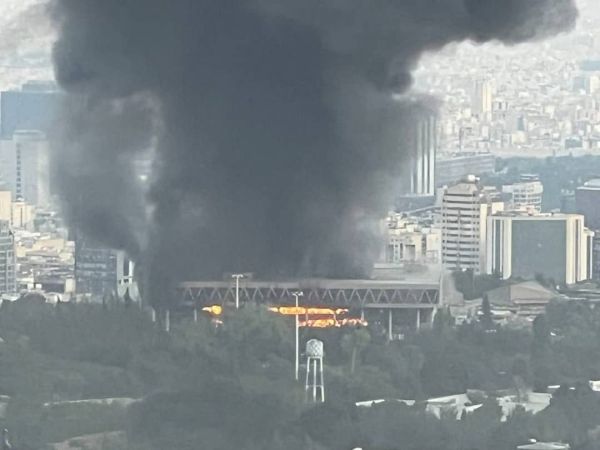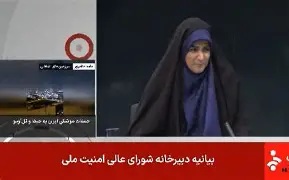
By Alireza Bahrami,
Correspondent for AsiaN
TEHRAN: The war has entered its fourth day. Tehran became noticeably quieter on the fourth day of the war (Monday). Hundreds of thousands of people left Tehran by car on Sunday evening. Yesterday, the Israeli army attacked several residential areas. They had said they would not do this. These attacks caused heavy traffic at the exits of Tehran.
Tehran is a large, densely populated city. So, despite the departure of many citizens, millions of people are still in Tehran. The streets are deserted and there is little traffic. Most people are in their homes. Tehran has no shelter, and this is one of the people’s criticisms of the government. The people of Iran have been very critical of the government in the past few years.
Do you remember the street protests in Iran? One of the reasons was the demand for freedom, another reason was to protest against administrative corruption in the government structure.
Analysts believe that Benjamin Netanyahu has also relied on the people’s dissatisfaction in this war. The son of the former Shah of Iran, who is an ally of Israel, encouraged the Iranian people to revolt in videos. Some Iranians abroad are happy about Israel’s attack on Iran, because they enjoy revenge. Many Iranians abroad are also sad and regretful about the start of this war.
There are 7 million Iranians abroad. But what I saw in talking to the people of Tehran was that Netanyahu’s wish and prediction will not come true soon. People in Iran have hurt their pride. They are angry with the government, but they cannot forgive that Israel has invaded their homes.
The Iranian people did not expect to experience the feelings of the people of Syria, Iraq, Libya, Lebanon, Palestine and Afghanistan. That is why they are very angry. And this anger has made them help each other more.
Many of my friends who have left Tehran, or who live in other cities, keep calling me. They want to convince me to leave Tehran with my family and join them.
But I am a journalist. I have responsibilities like doctors. I had previously covered earthquakes, floods, fires, plane crashes, riots, revolutions, and other events in Iran and other countries. I always thought that I had never experienced war journalism. I didn’t know if I would wish for it or not? But I didn’t think that one day I would be covering war in my own city.

After threats that Israel was planning to attack Iranian media, our news agency was reshuffled. I was home today. The internet has been slowed down to prevent cyberattacks, but it hasn’t been cut off.
Many of my colleagues wrote their reports at home. But on the evening of the fourth day of the war, Israel attacked Iranian television. It was a live news program when the studio ceiling suddenly collapsed, but the news anchor was not killed. She was a woman. She was doing her job until the last moment and the last explosion. Israel justified the attack on the television by saying that it was because they were broadcasting military news!
How many people were killed and injured in the attack on Iranian television? The news program was interrupted, but after a while the program resumed and the same female presenter returned to the studio.
Of course, many Iranians are critical of Iranian television and watch foreign television channels. Those channels operate with money from the US State Department or the Saudi government.
That is why they are more pro-Israel. The result of the mismanagement of Iranian television is that people pay attention to the words of the government’s enemies.
As I type this article, the city is quiet at night. The sound of air defense is less audible, although sometimes it becomes intense. Of course, many of the attacks last night were carried out at 2-3-4 o’clock.
Yesterday evening I walked the streets. The city was noticeably quiet, but I saw a man watering the garden in front of his house and the garden in front of his neighbor’s house. One of the neighbors was also repairing his air conditioner. And a teenage boy was on the street with a scooter. This gave me hope that life would return to the city of Tehran.




